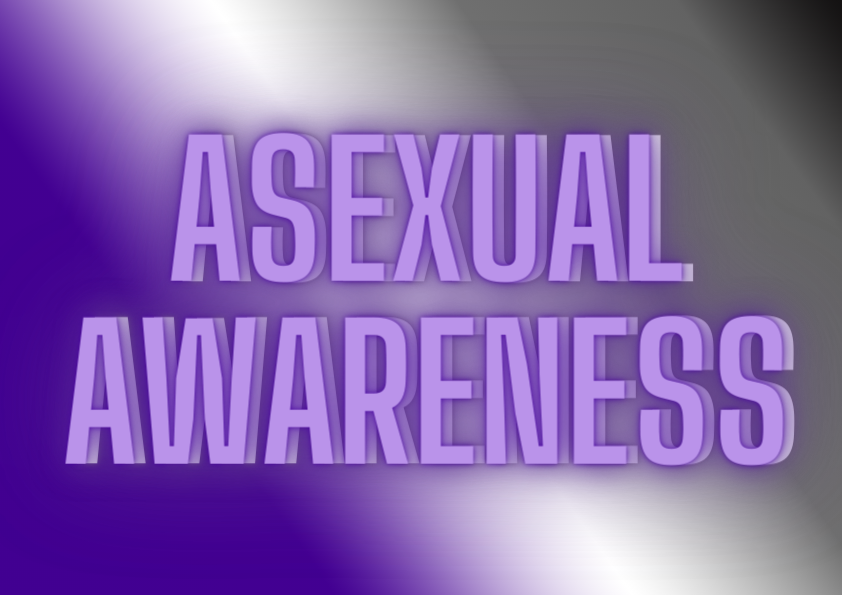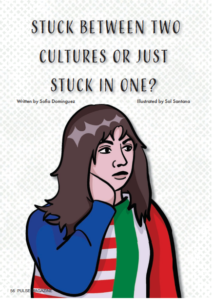All About Asexuality

Asexuality is a term that you may be familiar with if you took a biology class. But did you know it has a second meaning? According to UCLA Williams Institute, the term is used by 1.7% of Americans. The Asexuality Visibility and Education Network (AVEN) defines asexuality as “a sexual identity that means one does not feel sexual attraction to any gender(s).” This identity, unlike celibacy or abstinence, is not a choice made by an individual. Rather, it is just the way 5.6 million Americans experience sex and sex culture.
Under the ace (asexuality) spectrum, or aspec, there are a multitude of labels that help people identify with a community. There are two main sub-labels, which are graysexual and demisexual.
According to AVEN, graysexual, gray-ace or grace is a term for people who experience less sexual attraction than others. This can mean not experiencing sexual attraction as often, or when sexual attraction is felt, they do not feel it as strongly as others.
Demisexual or just demi, on the other hand, is defined by not experiencing sexual attraction until a strong emotional bond is formed with another person. However, emotional bonds can form in many different ways and just because this bond is present does not mean that the attraction will occur. Demisexuals are not attracted to all of their friends and do not experience sexual attraction to people they have not connected with, such as celebrities or fictional characters.
However, if one does not feel sexual attraction toward another person, this does not mean they are incapable of feeling romantic attraction.
The ace spectrum also uses the idea of the Split Attraction Model, or SAM, to make distinctions between sexual, romantic, aesthetic and platonic attractions. Any prefix that comes before a sexual attraction can also come before the word “romantic.” For example, aromantics are people who do not feel romantic attraction to any gender(s). As you can see, the prefix “a” has the same meaning regardless of its suffix, either romantic or sexual. Similarly, grayromantic and demiromantic have the same meaning as their sexual counterparts, just referring to romantic attraction instead.
These labels give people an identity to connect with, but there is not a lot of conversation about it. People who may find solidarity in the aspec community are often left as feeling alone and confused. Talking about aspec identities will help people find communities of like-minded individuals.
One way people are raising awareness about asexuality in the United States and globally is through Ace Week. The week is celebrated from Oct. 24 to Oct. 30.
Check back with Pulse on Oct. 27 to read a Q&A with Sarah Costello and Kayla Kaszyca, co-hosts of the podcast “Sounds Fake but Okay.” The Q&A will discuss the questioning process and provide advice for those who feel that they resonate with the labels listed above.








